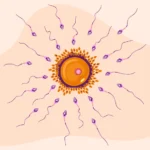Hormonal fluctuations affect both men and women, influencing health and well-being at different stages of life. Hormone specialists focus on diagnosing and treating conditions related to the endocrine system; they use detailed assessments, targeted diagnostic testing, and personalized plans to support balanced hormone levels. Here’s how these specialists help address hormonal concerns for men and women:
Conducting a Detailed Hormone Evaluation
Hormone specialists begin with a thorough evaluation; this is a key step for understanding an individual’s overall health status and identifying potential hormonal imbalances. During this phase, the specialist gathers information by reviewing medical and family health history. Lifestyle factors such as diet, activity level, sleep patterns, and stress management may also be explored in detail.
A focused discussion about symptoms follows. For women, topics include irregular menstrual cycles, menopause symptoms, or changes in energy and mood. For men, conversation topics might range from muscle mass and fatigue to altered libido. This information helps create a clear initial profile of the individual’s hormone-related experience, and the insights act as a fundamental guide for subsequent diagnostic testing.
Utilizing Focused Diagnostic Testing
After completing the initial assessment, the hormone specialist recommends diagnostic tests to determine current hormone levels. Blood tests may be used to measure concentrations of hormones such as:
- Estrogen
- Progesterone
- Testosterone
- Thyroid hormones
- Cortisol
The timing of some tests is key for accuracy, especially for women whose hormone levels fluctuate throughout the menstrual cycle. A specialist may also find saliva or urine testing helpful in specific situations. These tests provide the objective, quantitative data necessary for identifying and understanding hormonal imbalances.
Developing a Tailored Management Strategy
When test results are available, the hormone specialist reviews them alongside the individual’s symptoms and clinical history. This integrated analysis helps construct a management plan that reflects both objective findings and the unique needs of the individual. The plan is tailored for each person’s specific goals, lifestyle, and health priorities. If a 55-year-old patient shows declining testosterone levels and experiences fatigue and low mood, the specialist may recommend hormone replacement therapy.
Adjustments to diet, exercise, stress management, and sleep routines can be helpful strategies; these play a key role in supporting natural hormone function. Some specialists also offer hormone replacement therapy (HRT). HRT involves supplementing hormone levels with bioidentical or synthetic options, based on carefully evaluated needs. Each approach is discussed thoroughly, and the specialist encourages individuals to contemplate their preferences and personal circumstances. Ongoing follow-up visits support monitoring, adjustment, and sustained benefits throughout the process.
Meet With a Hormone Specialist
Hormone specialists use a structured, analytical process to support hormone balance in both men and women. Focused diagnostic testing following an initial evaluation and the creation of tailored management plans are at the core of their practice. By following this approach, specialists can address a range of issues associated with hormone fluctuations; this includes fatigue, low libido, mood changes, and weight gain. If you are experiencing symptoms related to hormone imbalance, contact a qualified hormone specialist today to discuss a personalized management strategy.


